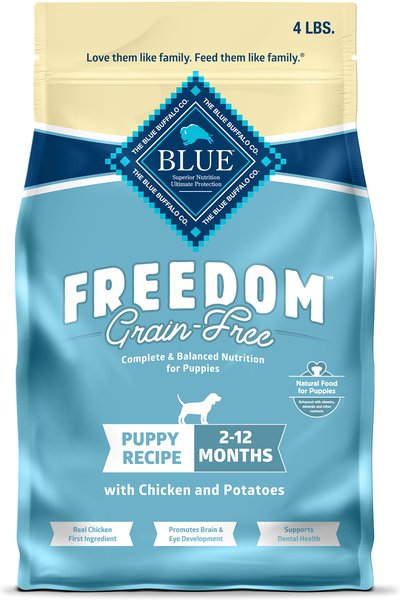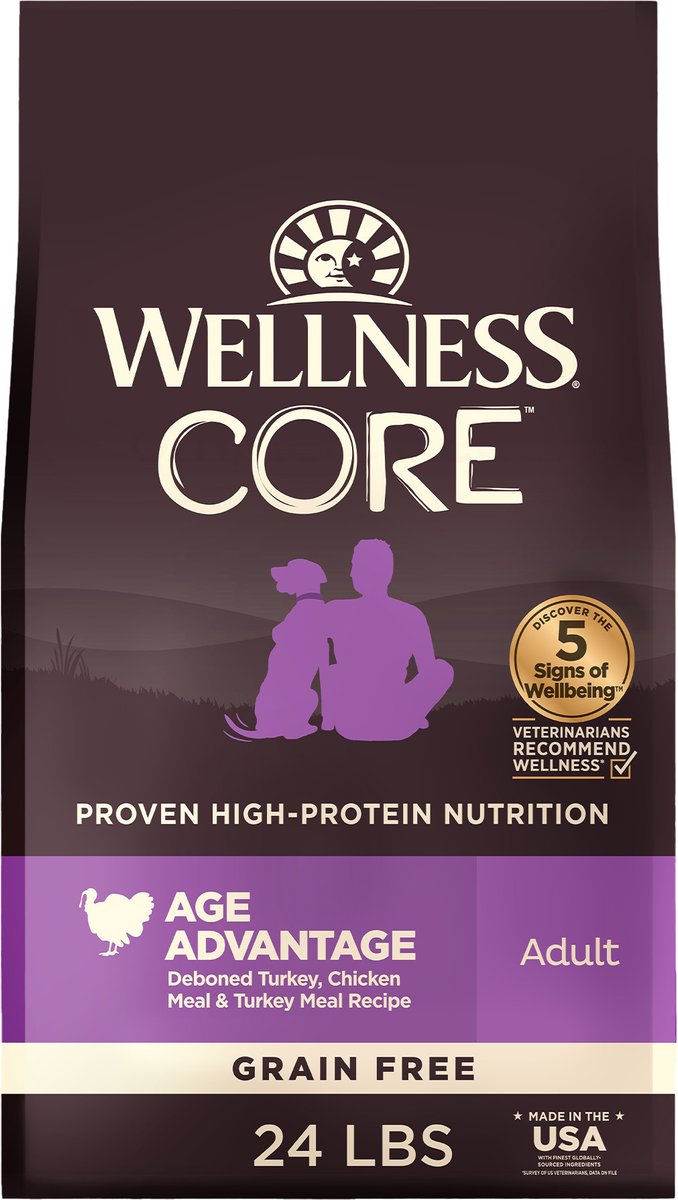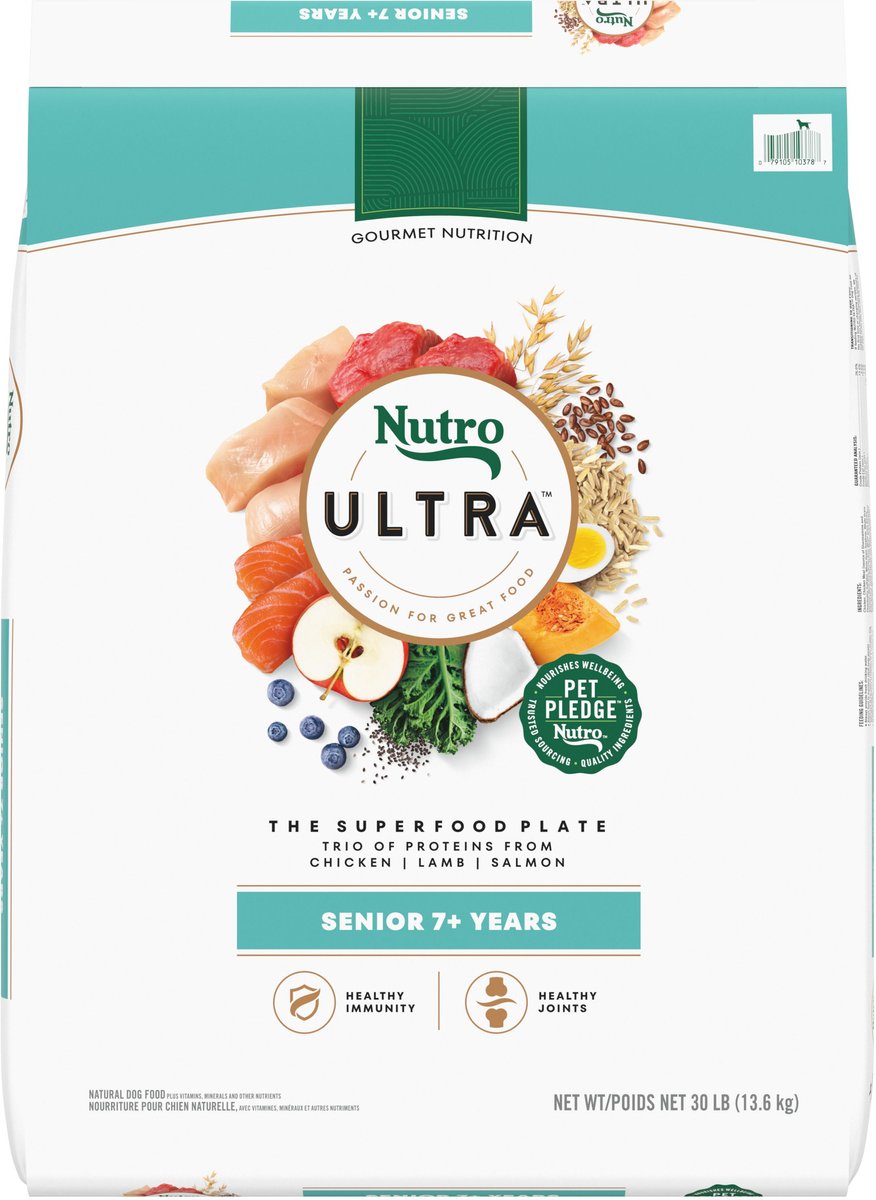What are the Best Dog Foods for Tibetan Mastiffs?

Tibetan Mastiffs are an ancient breed, considered the guardians of the Himalayas. Their size and loyalty make them excellent guard dogs, but their physical build and genetic history make for some special nutrition considerations. We've put together our recommendations and rationale here for the best diets for Tibetan Mastiff puppies, adults and seniors.
Jump to section
Breed Info
Breed Group:Working | AKC Tibetan Mastiff Profile
Ideal Weight:Female Adult: 84 to 106 pounds
Male Adult: 106 to 134 pounds
Exercise Need:15 to 25 minutes per day
Breed Summary
Tibetan Mastiffs originate from the Himalayas, kept by the indigenous people of the region, for hunting reindeer. Once reindeer were domesticated as livestock herds, the TMs role shifted to that of guardian, watching over the herd and its human family. Tibetan Mastiffs are smart and strong-willed, which makes training extremely difficult. TMs require dedication and an equally strong-willed handler. They can be aggressive with small children and strangers, so a thorough knowledge of the breed is imperative before bringing one home. TMs are low shedding, losing their coat once a year.
Tibetan Mastiffs are generally healthy dogs, although puppies need to be evaluated for hereditary disorders. They may tend to gain weight in later years, so plan to make appropriate diet changes as needed.
Physical Traits
Large, muscular, tolerates cold climates
Personality Traits
Stubborn, intelligent, protective of family and livestock, not good with strangers, can be territorial
Health Considerations
-
Tibetan Mastiffs are generally a healthy breed but should be evaluated for hereditary conditions such as canine inherited demyelinative neuropathy, entropion, and seizures. Hip and thyroid tests are also useful for the breed. Tibetan Mastiffs should be closely monitored as they age. Keeping any dog, especially one as large as a mastiff, at an appropriate weight is your first line in defense against disease.
-
Dysplasia and Joint Issues
Genetics may play a role in canine hip dysplasia as well as obesity and rapid weight gain. Daily activity with their giant bodies can also contribute to arthritis. Nutritional considerations for joint issues may include:
Recommendations:
Antioxidants・ Chondroitin・ Glucosamine・ Green Mussel・ Methylsulfonymethane・ Omega-3 from Fish Oil・ Taurine・ Turmeric・ Vitamin E -
Osteochondrosis Dissecans (OCD)
OCD is when diseased cartilage separates from the bone and can be genetic or caused from nutritional deficiencies.
-
Weight Management
Tibetan Mastiffs need plenty of controlled exercise – never off leash and never left alone outside. Sufficient exercise is one of the best ways to keep your dog’s weight in check.
Recommendations:
Large bites (to slow chewing)・ L-carnitine・ Low calorie・ Low fat
Get a tailored nutrition profile for your dog
Our free nutritional assessment tool provides individualized recommendations based on your dog's breed characteristics, age, weight, body condition score, and activity level. It only takes 30 seconds to receive science-based insights to support your dog's lifelong health.
Are Fresh Food Diets Good for Tibetan Mastiffs?
Only if they’re properly balanced.
Many well-intentioned Tibetan Mastiffs parents spend a lot of time preparing meals at home, but health benefits are lost if meals aren’t properly portioned and balanced with all the nutrients dogs need. Recently, a few companies have done an excellent job ensuring accurate portions and nutrient balance by delivering pre-prepped fresh meals customized to the size and needs of your dog. Farmer’s Dog, Ollie and Nom Nom have each been approved by our nutrition team as delivering truly quality and well-balanced meals. They can be a little expensive (usually 3-4x more per day than kibble), but many find the added health benefits worth the cost. They do offer discounts to new customers, though, if you’d like to try one out.
Pros and Cons of Fresh Food Diets
✓ Diets balanced by Nutritionists・ ✓ Customized portions for weight control・ ✓ Superior digestive and immune health ・✕ More expensive than standard dog food
Foods We Recommend for Tibetan Mastiffs Puppies
How long do Tibetan Mastiffss need puppy food?
Until they're 12 to 24 months old.
Tibetan Mastiffs are very focused on growing, and how we feed them should help them do just that. Since they have so much growing to do, they need higher amounts of nutrients than adult dogs, especially proteins, fats, carbohydrates, vitamins, minerals and — don’t forget — water. It’s still important to not overfeed puppies, so make sure to portion food and keep treats to no more than 10% of their caloric intake. Since balance is so important, we recommend that your young Tibetan Mastiffs is eating food that is made just for puppies from a reputable brand.
Find the best nutritional start for your puppy
Our recommendation tool evaluates your puppy’s breed, age, growth stage, lifestyle, and health needs to identify a scientifically appropriate diet from over 10,000 options. Obtain personalized guidance to help support healthy development and lifelong wellness.
Foods We Recommend for Tibetan Mastiffs Adults
When should Tibetan Mastiffs start transitioning to adult food?
When they're 12 to 24 months old
From a nutrition standpoint, Tibetan Mastiffs become adults once they reach about 90% of their expected weight. Once adults, our two key nutrition goals are balance and maintenance. We want balance because a dog’s body is responsible for a lot of things, like digestion, fighting infection, keeping muscles strong, and chasing squirrels. These are all important tasks, so we want to make sure each body function gets its share of nutrients. We also need to maintain a healthy weight. Underfed dogs are at risk for malnourishment, and overfed dogs can become obese — both of which lead to even worse problems for a Tibetan Mastiff
Find the optimal nutrition plan for your adult dog
Our assessment analyzes your dog’s breed, age, lifestyle, and health considerations to recommend a scientifically selected diet from over 10,000 options. Personalized insights to help your dog thrive through adulthood.
Foods We Recommend for Tibetan Mastiffs Seniors
When should Tibetan Mastiffs start transitioning to senior food?
All dogs can age differently, but giant dogs like Tibetan Mastiffs can start to benefit from senior food around 5 to 6 years old
Ever watch kids running around the playground and wish you had that energy again? Yeah. Dogs get there, too. The metabolic processes in senior Tibetan Mastiffs slow down as they age, which often means they aren’t needing quite as many calories as they did in their prime. Smart dog food companies have formulated senior diets to ease up on calories but still help them feel full and give them adequate maintenance protein. Still, like humans, everybody is different. Sometimes older dogs need just as many calories, or more, depending on how their bodies progress. So keep a close eye on their body condition, and look for dog foods made for seniors.
Support your senior dog's health with targeted nutrition
Our assessment analyzes your dog’s breed, age, and health considerations to recommend a science-based diet from over 10,000 options. Help maintain mobility, cognitive health, and quality of life.
Affiliate Disclosure:
We do not accept money to recommend pet foods. However, we do receive referral fees from online retailers (such as Chewy or Amazon) on qualifying purchases. Our recommendations are neutral, and diet recommendations are made without considering whether we will receive a referral fee.















